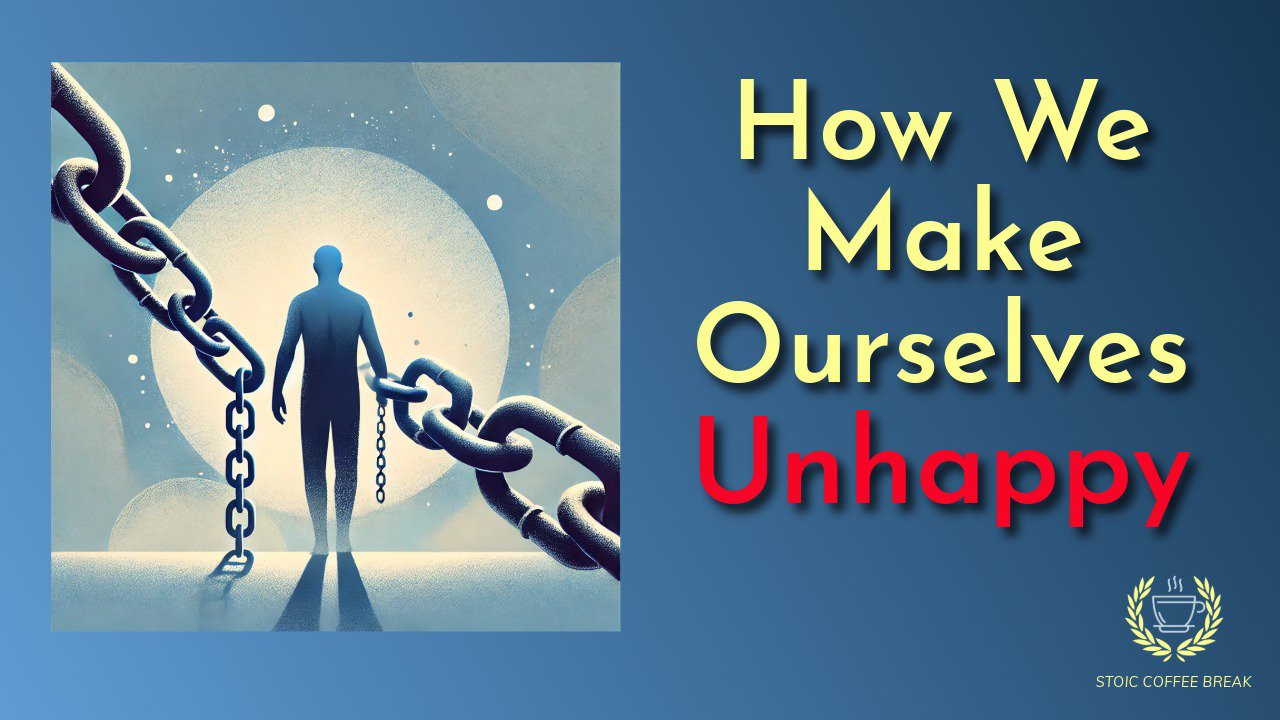Tag: fear
-

331 – How We Make Ourselves Unhappy
Happiness often eludes us not because life is inherently unfair, but due to our own expectations and perceptions. The Stoics teach that by letting go of these expectations and embracing what comes, we can find true peace and contentment.
-

328 – Q & A: Money, Politics, & Good Enough
In a world fraught with financial stress, political discord, and personal insecurities, Stoicism offers timeless wisdom. By focusing on internal virtues over external possessions, understanding diverse perspectives in heated debates, and accepting oneself fully to foster genuine change, we can navigate life’s challenges with grace and resilience.
-

315 – The Strength to Feel: A Stoic’s Journey to Emotional Clarity and Connection
Do you feel like you’re truly in charge of your emotions? Often, we fear that adopting Stoicism might strip away the intensity of our feelings. But what if mastering our emotions could help us experience them more deeply, rather than less?
-

303 – The Antidote to Anger: The Art of Stoic Acceptance
“If you are irritated by every rub, how will your mirror be polished?” —Rumi Do you struggle with anger? Discover how Stoicism can help you transform that rage into peace. By embracing the art of acceptance and understanding the root causes of our emotions, we can lead more harmonious lives. Dive deep into personal stories…
-

277 – Embracing the Unexpected: How to Handle Life’s Plot Twists Like a Stoic
“Life is a storm that will test you unceasingly. Don’t wait for calm waters that may not arrive. Derive purpose from resilience. Learn to sail the raging sea. — @TheStoicEmperor Do you fear the unexpected? Do you stress out when life throws you a curveball? Life is full of surprises. When we think that we’ve…
-

275 – A Courageous Mind
“Courage is not the absence of fear, but rather the assessment that something else is more important than fear.” — Franklin D. Roosevelt Do you live in fear? Learn why courage is the foundational virtue of stoicism and how to develop a courageous mind. Overcome adversity, gain wisdom, practice justice, temperance, and take responsibility. Cultivate…
-

269 – Getting Unstuck
“The limit is not the sky. The limit is the mind.” — Wim Hof Are you feeling stuck in life? Do you find it difficult to move forward and break free from the rut you’re in? In this article, we explore the reasons behind getting stuck and offer practical ideas to help you get unstuck.…
-

258 – Nothing Endures But Change
“Nothing endures but change.” — Heraclitus How do you handle change? Does it overwhelm you? Do you try to ignore it or do you embrace it? Today I want to talk about understanding change and how we can use stoicism to help us through some rocky times.
-

257 – Face Your Fears
“While we wait for life, life passes.” —Seneca Are you afraid to take risks? Do you continually play it safe? Are you living a life that is comfortable but unchallenging? Today I want to talk about how we can push ourselves to take more risks and live life more fully.
